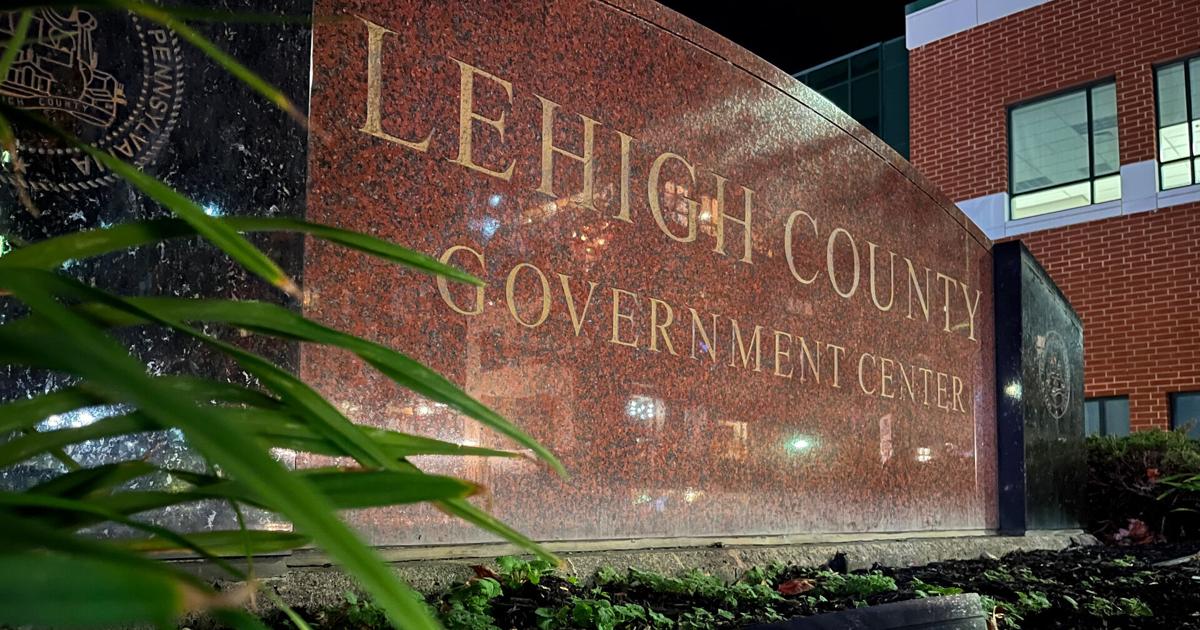ALLENTOWN, Pa. – Lehigh County’s fiscal office is preparing for the possibility that the state legislature’s budget impasse could extend into 2026.
Chief Fiscal Officer Tim Reeves told the county’s board of commissioners on Wednesday that the county will exhaust its $25 million stabilization fund by the end of the year, leaving its balance at zero.
“We need to manage our finances very tightly through the end of the year,” Reeves said.
If the state does not release withheld funds, Reeves said the county will sign a $40 million to $60 million loan on Jan. 2, 2026, to fund services until tax revenues replenish county coffers in the spring.
“Fortunately, we do have the stabilization fund and flexibility with some things,” Reeves said. “I think that we’re going to be in an OK position; it’s just that we’re going to deplete our reserves.”
Lehigh County joins nearly every other county in Pennsylvania facing financial strain due to the budget stalemate, many of which will have an asterisk attached to 2025’s budget numbers, Reeves said.
The loan will be selected through a request-for-proposals process in November, he said.
As part of the discussion, officials also brainstormed ways to pressure state lawmakers to act.
“I never like to solve a problem with three other problems. I wouldn’t recommend that other than for the statement aspect of it,” Reeves said.
Commissioner Jon Irons said that collective action across the counties was the “only power we really have at the moment to have any impact on this fiasco.”
He also said that withholding payments was something that should be entertained despite the risk.
County Solicitor Catharine Roseberry said that the county stands to incur a $1,000 per day penalty for each day payment is delayed.
“Not paying them will also be a problem for us,” Roseberry said.
Reeves urged legislators to consider crafting a measure guaranteeing county payments for essential services during budget impasses, similar to how lawmakers’ salaries are protected. Commissioners voiced support for the idea, and further discussion was scheduled for a November finance committee meeting.
2026 budget
In other money-related news, commissioners passed Lehigh County’s 2026 budget, which would total approximately $538.5 million. The budget maintains the property tax rate at 3.78 mills, unchanged from previous years.
Commissioner Irons said a zero-increase budget amidst rising costs effectively represents cuts to county services at a time when they’re needed most.
“We’re doing everything we can to keep the ship afloat,” Irons said.
Keeping property taxes level is one of the “biggest and most effective” programs to help people stay in their homes amidst uncertainty, said Commissioner Ron Beitler. He applauded county financial staff and the county executive for their “surgical” approach to the budget.
Board Chair Geoff Brace said the budget doesn’t provide for everything, but it does provide for world-class health care at Cedarbrook, the county-run senior care home and mental and behavioral health care, “to the best possible extent we can do so.”
The budget also preserves a $25 million stabilization fund.
Proposed staffing changes include upgrades in pay grades in the controller’s office, and new roles of community intervention specialist and admissions manager are also part of the budget.
The budget also stipulates that positions funded wholly or partially by state, federal or other external grants would be terminated automatically if those funding streams are reduced or eliminated.
Overtime bonus program
In other news, the board of commissioners had first readings of two ordinances extending a temporary overtime bonus program for correctional officers and 911 communications center employees through February.
“These individuals deserve more money…I think they should be paid like the job they’re doing,” said Commissioner Zach Cole-Borghi.
For correctional officers, the measure continues a $5-per-hour discretionary bonus for eligible officers who work additional shifts when staffing levels fall below minimum requirements.
Corrections Director Janine Donate said the incentive helps the department maintain safe staffing levels and reduce reliance on more expensive emergency coverage. The bonus can be activated when vacancies exceed the shift complement by more than three positions or when operational needs require extra support.
The program will be reviewed again before its expiration to determine whether further action is needed. County officials said the bonus is part of a broader effort to stabilize operations at the Lehigh County Jail amid ongoing recruitment and retention challenges.
A separate ordinance extends a temporary overtime bonus program for 911 Communication Center employees.
The measure allows eligible 911 staff to receive a $5-per-hour bonus for working extra shifts, with the rate increasing to $10 per hour during major holidays, severe weather, or emergency events when authorized by the department’s leadership.
Rick Molchany, the county’s Director of General Services, said the 911 center is operating with a staffing deficit of more than 25%, and the incentive is designed to help maintain adequate coverage while reducing reliance on emergency overtime measures.
The funding will come from the department’s existing personnel budget, with no additional spending required. The program will be reviewed before it expires to determine whether further action is needed to stabilize staffing levels at the county’s emergency communications hub.
Senior living campus expansion
Lastly, the commissioners had the first reading of a measure authorizing the county’s General Purpose Authority to issue up to $25 million in tax-exempt revenue bonds to finance an expansion project for Bible Fellowship Church Homes Inc., which operates the Fellowship Community senior living campus in Whitehall Township.
The funds will be used to plan, develop, construct, and equip 24 new independent living units and make additional infrastructure improvements on the organization’s campus at 3000 Fellowship Drive. The financing package may also cover reserve deposits, capitalized interest, working capital, and costs of issuing the bonds, according to the resolution.
The General Purpose Authority, which has no taxing power, will issue the bonds, meaning the county and its taxpayers carry no financial obligation for repayment.

